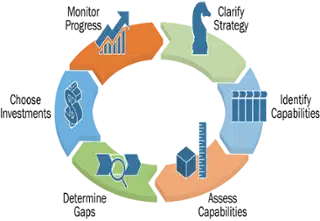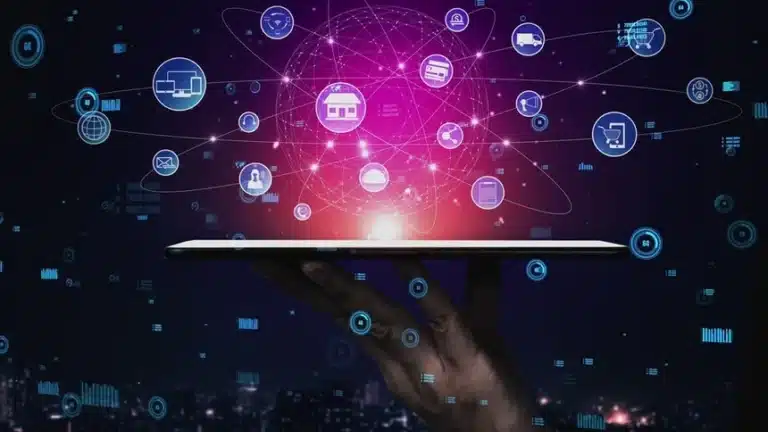In recent years, digital disruption has become a central theme in the evolving business landscape. This phenomenon occurs when emerging technologies and new business models significantly alter the fabric of existing industries and markets. The pace of innovation has accelerated, fueled by developments in artificial intelligence (AI), the Internet of Things (IoT), and other pivotal technologies. These disruptions are altering business processes and reshaping how industries operate, leading to improved efficiencies, new opportunities, and, sometimes, challenging transitions.
1. The Rise of Telehealth Services
The healthcare sector has seen profound changes due to digital technology, with telehealth emerging as a quintessential example. Advancements in telecommunications, mobile technology, and consumer demand for accessible and efficient healthcare solutions have propelled this shift toward virtual healthcare.
One notable instance of this transformation is the widespread adoption of telehealth platforms during the COVID-19 pandemic, which allowed patients to receive medical consultations via video calls. This maintained continuity of care during lockdowns and demonstrated the potential for telehealth to extend beyond crisis situations to become a regular healthcare delivery method.
As such, telehealth has significantly enhanced patient care by improving accessibility for rural and underserved populations and by offering greater scheduling flexibility. Furthermore, it has increased healthcare efficiency by reducing the need for physical space and streamlining patient management processes.
2. Fintech Innovations Transforming Banking
The banking and financial services industry is undergoing a revolution driven by fintech innovations. Fintech companies utilize technologies like blockchain, artificial intelligence, and data analytics to offer services that are more efficient, accessible, and secure than traditional banking methods.
Companies such as Revolut and Square have been at the forefront, offering digital-first banking experiences, including everything from real-time spending analytics to cryptocurrency trading. These fintechs have introduced novel features and set new standards for customer experience and financial management.
The rise of fintech poses significant challenges for traditional banks, which must innovate or risk losing market share. Additionally, consumer behavior is shifting as more individuals prefer online platforms for their financial needs, reducing the reliance on physical bank branches.
3. eCommerce Revolutionizing Retail
The retail industry’s landscape has been dramatically reshaped by eCommerce, which allows consumers to shop from the convenience of their homes. Integrating advanced logistics, AI-driven customer service, and personalized marketing strategies has accelerated this shift.
Amazon is a prime example of how eCommerce can dominate the retail market. The company has effectively utilized technology to optimize everything from inventory management to customer interaction, setting a high industry standard that pressures traditional retailers to adapt or falter.
The efficiency and convenience of online shopping have significantly impacted brick-and-mortar stores. Many have seen a decline in foot traffic as consumer preferences shift towards online shopping. This trend forces traditional retailers to integrate digital strategies into their business models, such as using their physical locations as showrooms or pick-up points for online orders.
4. Smart Manufacturing Redefining Production
The manufacturing sector is experiencing a transformation through digital technologies. Smart manufacturing involves IoT, AI, and robotics to streamline production processes and enhance product quality.
Manufacturers use IoT devices and AI to monitor equipment performance and predict maintenance needs. This prevents downtime and enhances operational efficiency and product quality.
The integration of these technologies allows for greater customization of products, improved supply chain management, and enhanced ability to respond to market demands swiftly.
5. Sustainable Energy through Digital Innovation
The energy industry is being transformed by digital technologies that enhance energy production and distribution efficiency and sustainability. Renewable energy companies increasingly rely on Big Data and IoT to optimize operations.
Companies like Tesla and NextEra Energy are leveraging these technologies to improve energy storage solutions and grid management, paving the way for a more sustainable and resilient energy future.
The use of digital technologies in energy contributes to more efficient consumption patterns, improved distribution networks, and reduced environmental impact. This is necessary for combating climate change and promoting sustainable development.
Embrace Digital Disruption with Accelare
Understanding your organization’s exposure to disruptive technologies is essential for adapting and thriving in this business era. If you want to learn more about digital disruption and your organization’s exposure, please click here to take our quick, online, 4-minute Digital Disruption assessment. Upon submission, you’ll receive an evaluation of your organization’s business model exposure to the disruptive forces introduced by new technology (AI, IoT, Big Data, etc.). The report views this disruption through a framework we call Enterprise Fitness and consists of the following four sections:
- The Domains of Digital Disruption
- Your Organization’s Digital Exposure
- The Digital Disruption Maturity Model
- Your Organization’s Digital Disruption Maturity Level




